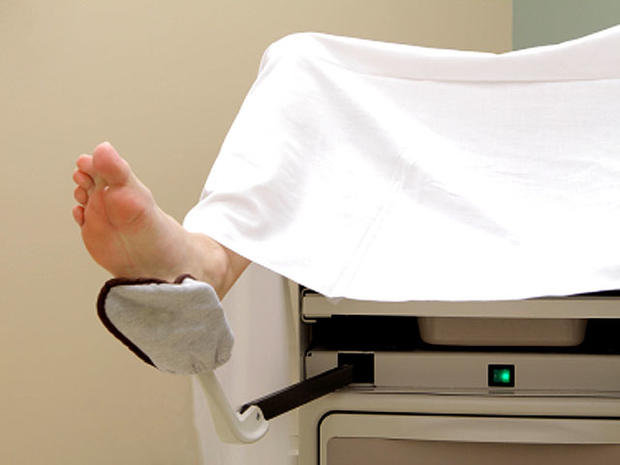HPV tests "better" than Pap smear at cervical cancer detection
(CBS) All women over 30 should get tested for human papillomavirus, say the authors of a new cervical cancer study. The study showed an HPV test was a better screening method to prevent cancer than the common Pap smear test alone.
PICTURES: 5 medical tests that could save your life (and 5 to skip)
For the study, published in the Dec. 14 issue of the Lancet Oncology, Dutch researchers studied nearly 56,000 women ages 29 to 56 who had appointments for routine cervical cancer screening. Some women underwent HPV testing in addition to a Pap test, while some women only had a Pap performed.
The Pap smear test checks for cell changes in that cervix that might indicate an infection or precancerous or cancerous cells. An HPV test takes a sample from the cervix and checks for the virus' DNA.
After screening, HPV tests discovered significantly more cell changes that may indicate cancer precursors than a Pap test alone, the study showed. All the women were screened again five years later - this time with both an HPV test and a Pap test - and women who had an HPV test the first time around had far fewer cancerous lesions than women who hadn't.
"Including HPV testing as the main screening method not only improves detection of precancerous changes, but also cuts cancer rates," study co-author Professor Jack Cuzick, an epidemiologist at Cancer Research UK based at Queen Mary, University of London, said in a written statement.
Dr. Hormuzd A. Katki and Dr. Nicolas Wentzensen, investigators from the National Cancer Institute, wrote in an accompanying commentary that the study provided "overwhelming evidence" of the benefits of incorporating HPV tests in cervical cancer screening.
Nearly 13,000 women are diagnosed with cervical cancer in the U.S. each year. Most cases are caused by HPV, which women can get through sexual contact. The disease kills almost 4,300 women each year. Women who are 26 or younger can also get an HPV vaccine that protects against two HPV strains that cause cervical cancer, according to WebMD.
WebMD has more on cervical cancer.

